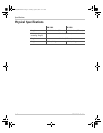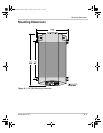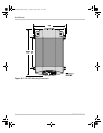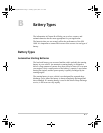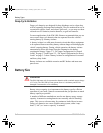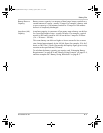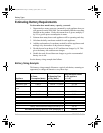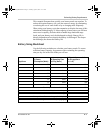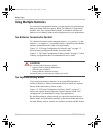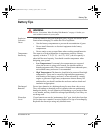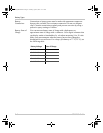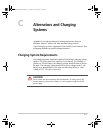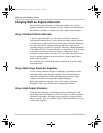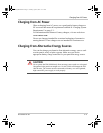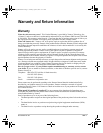
Battery Types
B–6 975-0263-01-01
Using Multiple Batteries
As your power requirements increase, you may need to use more than one
battery to obtain sufficient capacity. Read “Two Batteries Connected In
Parallel” and “Two Separate Battery Banks” to determine whether two
batteries or two battery banks are more appropriate for your applications.
Two Batteries Connected In Parallel
Two identical batteries can be connected positive (+) to positive (+) and
negative (–) to negative (–) in a parallel system. A parallel system doubles
capacity and maintains the voltage of a single battery.
Figure 3-1, “DC Input Configuration for Normal Loads” on page 3–2
shows a battery configuration suitable for normal loads.
Figure 3-2, “DC Input Configuration for Heavy Loads” on page 3–3 show
a battery configuration that is recommended for heavy loads.
Two Separate Battery Banks
If you need more than two batteries (or are using different makes or
models of batteries), Xantrex recommends that you install two separate
battery banks and a battery selector switch.
Figure 3-2, “DC Input Configuration for Heavy Loads” on page 3–3
shows two separate battery banks and a battery selector switch. This
configuration is recommended for heavy-duty applications.
By installing a battery selector switch, you can select between the two
battery banks, use both banks in parallel, or disconnect both banks from
the load. Battery selector switches are available at marine and RV dealers.
CAUTION
Do not connect the following in parallel:
• batteries made by different manufacturers
• different types of batteries
• batteries that have different Ah ratings.
Decreased battery life and improper charging will result.
Xantrex_PRO1800.book Page 6 Tuesday, April 24, 2007 11:33 AM



